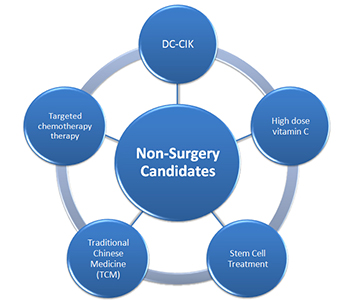Non-surgical Treatments for Cancer in Pune
Oncology is a division of medicine that bargains with tumors. Oncology is involved with the diagnosis of any cancer in a person (pathology), therapy (e.g. surgery, chemotherapy, radiotherapy, and other modalities), follow-up of cancer patients after successful treatment and palliative care of patients with final malignancies.Dr. Yadav Munde Provides awesome Non-Surgical Treatments for cancer in Pune.
Types of Minimally Invasive Onco Interventions:
1) Percutaneous interventions
2) Radiofrequency (RF) ablation
3) Cryoablation
4) Percutaneous ethanol injection (PEI)
5) Microwave ablation
6) Transarterial interventions
7) Transarterial chemoembolization (TACE)
Cancer patients usually have to deal with difficult side outcomes and psychological pain during cancer treatment, which has a large influence on their quality of life. Among psychosocial interventions for decreasing treatment‐related side results, relaxation and description were several investigated in controlled experiments. In this research, meta‐analytic techniques were used to integrate published, randomized intervention–control studies trying to increase patients’ treatment‐related signs and sensitive adjustment by relaxation training. Determine weighted effect sizes were calculated for 12 categories, treatment‐associated signs (nausea, pain, blood pressure, pulse rate) and sensitive adjustment (anxiety, depression, hostility, tension, fatigue, confusion, vigor, overall mood). Important positive results were found for the treatment‐associated symptoms. Recreation training also determined to have a significant effect on the emotional change variables depression, anxiety and resentment.
Additionally, two investigations point to a meaningful impact of relaxation on the loss of tension and amelioration of the overall mood. Intervention characteristics of the relaxation training, the time the expert used with the patient overall (intervention intensity), and the list of the attack (given in connection with or independent of medical treatment to the cancer patient) were related to the impact of relaxation on anxiety.
The interventions proposed separately of medical treatment determined to be significantly more efficient for the result variable anxiety. Rest appears to be useful for patients experiencing various medical methods (chemotherapy, radiotherapy, bone marrow transplantation, hyperthermia). According to these results, relaxation training should be performed into the clinical routine for cancer patients in acute medical treatment. Palliative care is care given to improve the quality of life of patients who have difficult or life-threatening diseases, such as cancer. Palliative care is an approach to care that addresses the person as a complete, not just their disease. The purpose is to stop or treat, as quick as possible, the symptoms and side effects of the disease and its treatment, in addition to any related psychological, social, and religious difficulties.
Palliative care is also called calm care, supportive care, and sign control. Patients may get palliative care in the hospital, an outpatient clinic, a long-term care facility, or at home following the direction of a physician. Ruby Hall Clinic is India’s leading center for Non-surgical Cancer Treatments in Pune, which allows a quick, reliable, and highly efficient, non-invasive solution. Known for his concise speak among partners and co-workers, Dr. Munde never hesitates to explain the MINIMALLY invasive procedures to patients. Dr. Yadav Munde is connected with Ruby Hall Clinic Pune. He is having great experience in treating all types of cancer patients.

